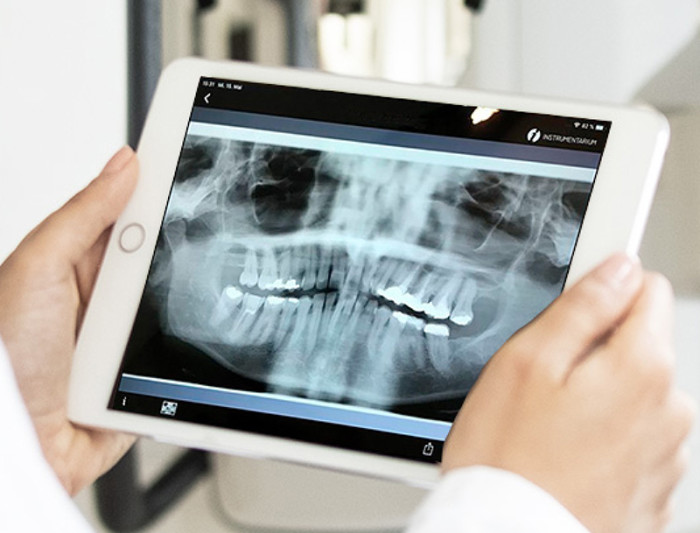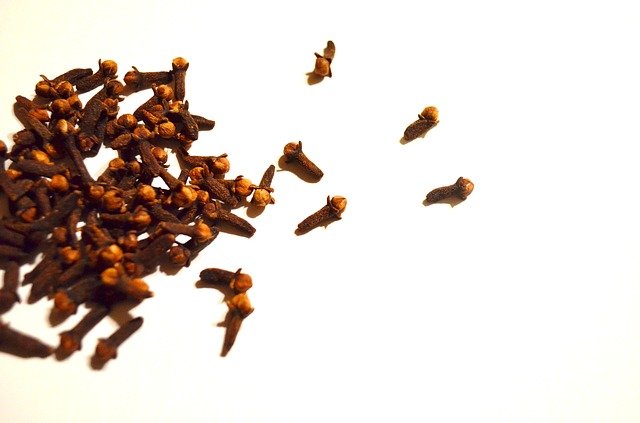What can help combat toothache?
There are various causes for toothache. But one thing is true to them all: it is difficult for those affected to endure particularly severe toothache. In all cases, a dentist should be consulted quickly. If toothache hits at night – e.g., when lying down – or at the weekend, home remedies or pain killers can help provide initial relief.
Note: If very severe toothache is experienced that cannot be localised, the chest feels constricted and the pain is radiating to the shoulder, these can be signs of a heart attack. In such cases, call the emergency doctor immediately!

Causes of toothache
The origins of toothache range from dental problems such as tooth decay to trigeminal neuralgia. The latter concerns the trigeminal nerve, which can cause severe toothache when inflamed. Toothache in molars or toothache when chewing is often caused by tooth decay or exposed tooth necks. Good oral hygiene is therefore unavoidable as a preventive measure. However, there are also other causes, which we will briefly present to you below.
THE RIGHT WAY TO BRUSH YOUR TEETHToothache after a filling
People can also experience pain after dental treatments. Fillings are a possible cause. Many people ask themselves: Is getting toothache normal after having a filling? And if so: How long will it last?
The answer is: Yes, pain can occur, but should subside after a few days. If it doesn't, please visit your dentist again. Possible causes of toothache after a filling:
The filling does not fit the natural dentition perfectly: the filling is too high and feels like a foreign body. This can be remedied by filing down the filling at the dentist's.
A lot of tooth decay had to be removed: this may have irritated the tooth nerve. If you are eating or chewing, this can increase the pressure on the filling and cause pain.
Inflamed gums and teeth: when the filling was inserted, bacteria may have got into the gums. In this case, good oral hygiene can relieve the pain.
![Karies: Symptome, Stadien, Anwendung und Vorbeugung]()
Toothache after root canal treatment
During a root canal treatment, the nerve is removed from the tooth, which should lead to freedom from pain. Sadly, this is not always the case. Some patients complain that the toothache is even worse after a root canal treatment, or that they experience pain when chewing. There ca be various reasons for this.
For one thing, a tooth can fracture during root canal treatment, which will be very painful to experience. Bacteria or tissue residues that were not removed can then also cause inflammation. If you are experiencing pain after a root canal treatment, you should definitely go and see your dentist again!
Toothache when you have a cold
When you have a cold, it's often the case that the teeth hurt, in addition to getting a stuffy nose. However, this is less about pain when pressure is applied to an individual tooth. Rather, the toothache is felt in several teeth – especially in the upper, lateral rows of teeth. The reason for this is usually the sinuses being inflamed by the cold, which places pressure on the tooth nerve. This then causes pain in the region of the teeth. Once the cold has gone away, the toothache should also improve.
Toothache when chewing
The most common cause of having a toothache while chewing is damage to the tooth. Toothache occurs especially in connection with chewing while having a cold, as well as when chewing hard food. You do not always need to see a hole in the tooth. If you have pulpitis (inflammation of the tooth nerves), especially, the hardness and temperature of the food play a major role.
One of the main causes of pain when chewing is tooth decay, where demineralisation creates a hole in the tooth. Toothache when chewing due to a cold is also entirely possible – as mentioned in the previous paragraph.
Toothache due to wisdom teeth
A wisdom tooth – or several – can also cause severe toothache. A common reason for this is a lack of space in the jaw. This pain is very unpleasant, especially at night. Other reasons include:
Toothache after wisdom tooth surgery
Eruption of wisdom teeth
Inflammation of wisdom teeth
Shifting teeth due to a lack of space
Tooth decay
If you experience chills, fever or difficulty swallowing after having a wisdom tooth operation, please visit a dentist quickly!
Toothache during pregnancy
Toothache during pregnancy is very common because the woman's hormonal balance changes significantly during this time. Some women complain of sore molars, others of bleeding gums.
This is because, among other things, the composition and quantity of the saliva changes. Around 75% of pregnant women suffer from pregnancy gingivitis, for example (= inflammation of the gums).
In addition, eating habits change during pregnancy – pregnant women often have great cravings for carbohydrates or sweets. Women should, therefore, pay attention to thorough oral hygiene right from the start of their pregnancy.
Relieving toothache
When it comes to toothache, what everyone primarily wants to know is: What will help quickly? If you have been suffering from toothache for a long time, please visit a dental practice. But what can you do outside of the treatment times? If the pain is extremely severe and you can no longer tolerate it, you can call an emergency dental emergency or be taken straight to hospital.
If the toothache is a little less bad, you can get advice about toothache remedies at the pharmacy. Caution is advised, especially during pregnancy and breastfeeding. Not every pain killer is suitable for these phases of life.
If you don't want to take pain medication, you can relieve toothache with home remedies. Homeopathic preparations are also often used.
Home remedies for toothache
Home remedies for children and adults are, in principle, suitable for relieving toothache. However, caution is required during pregnancy and breastfeeding. It is best to clarify with your doctor which methods are safe.
Cloves, onions and garlic: if you bite on a clove near the painful tooth, a slightly numbing effect will take hold. Generally speaking, cloves, onions and garlic are considered anti-inflammatory.
Teas made from peppermint, chamomile and ginger: these can be used in the the form of a mouthwash as a home remedy to combat inflammation in the event of toothache.
Cooling with an ice pack: since heat has a negative effect on pain, the affected area can be cooled with an ice pack – ideally wrapped in a cloth.
Salt solutions: if salt is dissolved in warm water and then kept in the mouth for about 2 minutes (do not drink!), this can reduce pain.
Oil pulling: this method is a well-known home remedy because it can strengthen the gums and reduce bacteria.
Home remedies for painful wisdom teeth: cooling is very helpful when there is swelling and inflammation. Sage and chamomile teas have a disinfectant effect, and you should avoid nicotine, alcohol and dairy products.
Home remedies for pain after root canal treatment: cloves, chamomile tea and cooling are also recommended here.

Toothache tablets
In the case of very severe toothache, for example after a wisdom tooth operation, prescription tablets are often used. These pain killers are very strong and almost always relieve pain, but you cannot buy them when you have acute toothache if you don't have a prescription.
Still, there are also pills that you do not need a prescription for which provide relief in an emergency. Among the best known are:
Acetylsalicylic acid (ASA): also known by the name aspirin, this light pain killer can only be used to a limited extent to combat toothache. Aspirin thins the blood and has an anticoagulant effect and must never be taken before a dental operation!
Paracetamol: is easily tolerated and is used for mild toothache. Since it is almost free of side effects, you can get up to 500 mg without a prescription in pharmacies.
Ibuprofen: if pain killers like paracetamol no longer help, ibuprofen often brings the desired effect. This is because ibuprofen has a stronger analgesic effect, but it is not suitable for long-term use.
Does alcohol help against toothache?
What sounds like a joke at first shouldn't be underestimated: alcohol can relieve toothache because it has a disinfectant effect. However, the alcohol should not be drunk, but rather used as a mouthwash. High-proof spirits such as vodka and grain alcohols are particularly good.
Relieving toothache in babies and toddlers
It is above all when the teeth break through that babies experience pain, and it goes without saying that this is then announced with tears – no matter whether day or night. However,
in the case of babies and young children, medication for toothache should only be prescribed by the paediatrician. There are some home remedies, thought, that can help relieve the pain. These include chewing on hard foods. Globules can also be used to combat toothache.
Relieving toothache in children
Like with toddlers, medications for children should only be prescribed by the paediatrician. Since toothache is often an indication of tooth decay, you should make an appointment at the dentist's office quickly.
The most common home remedies for toothache in children include:
Mouthwashes made from chamomile or sage tea
Cool the affected area: careful – cold! It is best to wrap the ice pack in a cloth so that the skin is protected
Cloves: as with adults, chewing a clove has a mildly numbing effect on the toothache
Toothache can be relieved with the aid of globules
Foot bath: warm (not hot!) water can dissipate the toothache and thus lead to relief.
